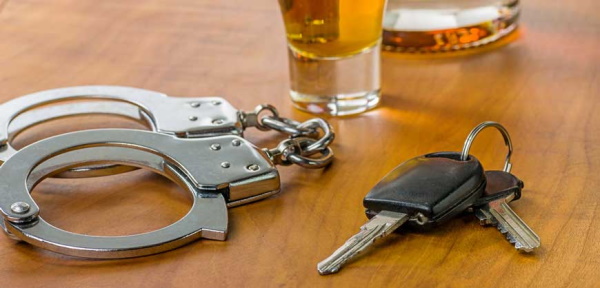If you blow into a breathalyzer and it comes back at or higher than 0.08 blood alcohol content (BAC) then you know your future is going to change dramatically.
However, this doesn’t mean that you’re completely at the mercy of the state. There are a few ways to avoid a DUI and the one we’ll cover today is the Entrapment defense. You should contact our for any further information.
The Police Coerced You
If a government or law enforcement agent induced you to take part in criminal activity that you’d unlikely to have taken part in otherwise is known as entrapment.
To make use of the entrapment defense, then the burden of proof shifts to you. As the defendant, you have to show that a law enforcement officer persuaded you to consume alcohol or use a control substance before getting behind the wheel. The precedent for entrapment in terms of driving while under the influence in North Carolina was set by, State v. Redmon, 596 S.E.2d 854, 164 N.C. App. 658 (2004).
To prove that you’re the victim of entrapment, you must either prove that the police or government agent use persuasion, trickery, or fraud to commit a crime you weren’t previously predisposed to committing. And, that the criminal intentions originated with law enforcement, rather than with you.
State v. Redmon
In the Redmon case, entrapment is fairly clear cut. The local police received a complaint of an individual parked in an apartment complex, fast asleep. At the site, the deputy on the scene encountered Redmon asleep at the wheel, however, the truck was turned off. It became evident that Redmon had been drinking the previous night. However, he had been drinking at a friend’s bar and received a ride back to his vehicle which was parked at the apartment complex where his girlfriend resided. Redmon decided to sleep in his vehicle until his girlfriend returned home and they would enter the complex together. As it was, there was no intention for Redmon to drive his vehicle, sober or otherwise.
After being awoken, Redmon conveyed the story as such. According to the testimony of Redmon, the deputy instructed him to move his vehicle since he was not a resident of the apartment complex. Citing that the deputy told him to “move along.”
The deputy then left the scene to begin his standard patrol in a nearby vicinity. Soon after, the deputy saw Redmon driving his vehicle from the apartment complex, and proceeded to pull him over.
This constitutes entrapment due to two main factors:
- The deputy had instructed Redmon to operate his motor vehicle
- Redmon had no intention of driving until ordered to move along
Burden of Proof
The burden of proof classically lies with the prosecution. However, when utilizing the instruction to entrapment defense, the burden of proof lies with the defendant. This doesn’t shift the burden of proof of guilt from the prosecution, on the need to prove entrapment. The prosecution will still need to convince a jury that you’re guilty beyond a reasonable doubt.
Notice to the State
Depending on the jurisdiction, if it lies with the Superior Court or the District Court, you may have to provide notice of the entrapment defense along with relevant information regarding the nature of the defense. This requirement is usually relegated to the Superior Court, and not necessary for the District Court.
Jury Instruction Regarding Entrapment Defense
If the defendant opts to go for the entrapment defense, the jury is instructed to know:
- The entrapment defense absolves the defendant of the criminal charge
- Entrapment is when an individual is induced into a crime they would not have otherwise committed by law enforcement in order to press charges
- The defendant has the burden to prove entrapment, not beyond a shadow of a doubt, but to the jury’s satisfaction
- The criminal intent did not originate with the defendant
- The defendant was persuaded (not just presented the opportunity) to commit a crime
- The defendant committed the crime on behalf of law enforcement or a government agent
Conclusion
The entrapment defense can prove a useful tool for getting out of a DUI, however, due to its exact parameters, it’s not a common occurrence. You’re unlikely to defend your case due to entrapment if an officer is just waiting for patrons to leave a bar, especially if they had no prior contact with them. Mainly, due to the fact that the patrons would have driven if the officer was there or not. However, as stated in the State v. Redmon case, there are times that you can play this defense.
If you or a loved one has been charged with a DUI, don’t wait to let the courts decide your future. Contact an experienced Asheville DUI defense lawyer immediately. Call Asheville DUI defense lawyer, today at 828-759-5556.




